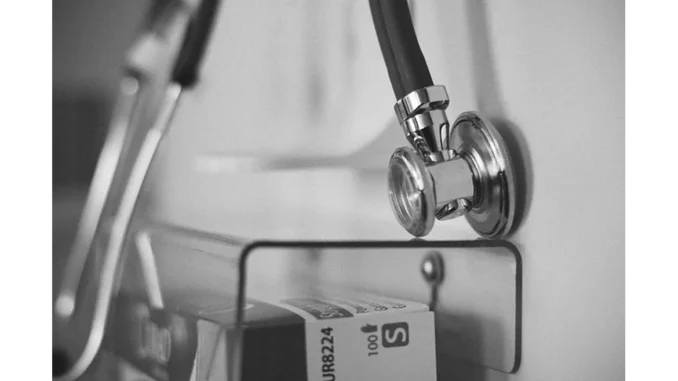
In the heart of Swansea, Morriston Hospital—a cornerstone of the community—has been a beacon of hope and healing for countless individuals. However, as I stepped into its bustling corridors on a particularly frenetic Wednesday morning, it became immediately clear that the facility was grappling with unprecedented levels of demand. The Swansea Bay Health Board had declared a Business Continuity Incident, marking the highest level of escalation due to extreme pressure on services.
To understand the situation from those on the ground, I had the privilege of speaking with Sarah Lloyd, a dedicated nurse who has been working at Morriston Hospital for over a decade. Her insights painted a vivid picture of the challenges faced by healthcare professionals during this period of immense pressure.
“It was like a tidal wave,” Sarah began, her voice a mix of exhaustion and determination. “We were coming off what we thought was just a tough weekend, but the demand didn’t let up. It just kept building.”
The declaration of a Business Continuity Incident isn’t taken lightly, and it reflects the “exceptional demand” that the hospital was experiencing. As Sarah explained, such a declaration means that every available resource is mobilised to ensure patient safety and care continuity, albeit under strained conditions. “We’re doing everything we can to maximise our capacity, not just here at Morriston but across all areas,” she continued. “But despite our best efforts, there are long waits, especially in the Emergency Department.”
The hospital’s advice to the public has been clear: think carefully before heading to A&E. For many, this might mean exploring alternative care options, such as the Minor Injury Unit at Neath Port Talbot Hospital or seeking advice from local pharmacists. “We’re urging people to use these alternatives where possible,” Sarah emphasised. “But of course, if someone has chest pains, a stroke, or a serious injury, they must still come to A&E.”
I asked Sarah about the mood among her colleagues, and she paused, choosing her words thoughtfully. “It’s a mix of stress and solidarity. We’re all tired, but there’s this shared understanding that we have to pull together. The public has been supportive too, which makes a big difference.”
One of the critical elements in managing this crisis has been the cooperation of the public, particularly when it comes to discharging patients. The hospital has urged families to collect loved ones who are ready to go home, freeing up beds for those in need of immediate care. “It might seem simple, but it really helps us,” Sarah noted. “Every bed that’s freed up means we can admit another patient who needs it.”
The conversation shifted to the impact on patients. While the hospital is stretched thin, Sarah assures me that the commitment to patient care remains unwavering. “Patients are at the heart of everything we do,” she said with conviction. “Even in the toughest times, we’re focused on providing the best care possible.”
As the interview drew to a close, Sarah shared a message of hope and resilience. “We’ve faced challenging times before, and we’ve come through stronger. I believe we’ll do the same this time. It’s about working together—staff, patients, and the community.”
Leaving Morriston Hospital, the weight of the situation was palpable, yet I couldn’t help but feel inspired by the dedication of the staff and the spirit of cooperation that permeated every interaction. The hospital, despite its current struggles, remains a testament to the strength and resilience of the community it serves.
As Swansea Bay Health Board and Morriston Hospital continue to navigate this challenging period, the message to the public remains one of caution and cooperation. By working together, there is hope that this storm, like others before it, will pass, leaving behind a stronger and more united healthcare system.
Issac Grey


Be the first to comment